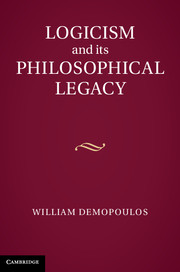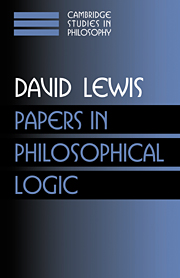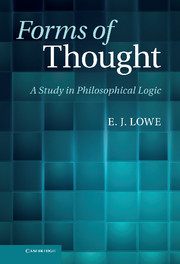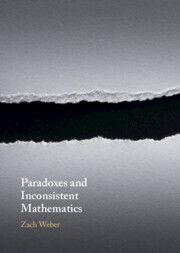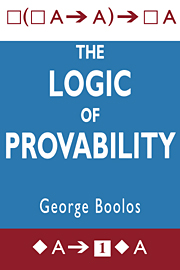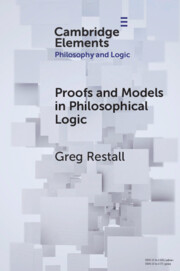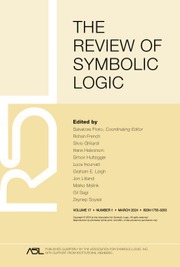Logicism and its Philosophical Legacy
- Author: William Demopoulos, University of Western Ontario
- Date Published: January 2013
- availability: Available
- format: Hardback
- isbn: 9781107029804
Hardback
Other available formats:
Paperback, eBook
Looking for an inspection copy?
Please email [email protected] to enquire about an inspection copy of this book
-
The idea that mathematics is reducible to logic has a long history, but it was Frege who gave logicism an articulation and defense that transformed it into a distinctive philosophical thesis with a profound influence on the development of philosophy in the twentieth century. This volume of classic, revised and newly written essays by William Demopoulos examines logicism's principal legacy for philosophy: its elaboration of notions of analysis and reconstruction. The essays reflect on the deployment of these ideas by the principal figures in the history of the subject - Frege, Russell, Ramsey and Carnap - and in doing so illuminate current concerns about the nature of mathematical and theoretical knowledge. Issues addressed include the nature of arithmetical knowledge in the light of Frege's theorem; the status of realism about the theoretical entities of physics; and the proper interpretation of empirical theories that postulate abstract structural constraints.
Read more- A rich collection of classic, revised and newly written essays by a leading commentator on twentieth-century analytic philosophy
- Ranges over the work of major figures including Frege, Russell, Ramsey and Carnap
- Relates the history of logicism to current concerns about the nature of mathematical and theoretical knowledge
Reviews & endorsements
'As a philosophy major at the University of Western Ontario in 1995 I was fortunate enough to enroll in Demopoulos' history of analytic philosophy class … The essays in this volume preserve the intensity and commitment to rigorous argumentation that I first encountered in that class twenty years ago. … I look forward to Demopoulos' next contribution to these important debates.' Chris Pincock, The Journal of Bertrand Russell Studies
Customer reviews
Not yet reviewed
Be the first to review
Review was not posted due to profanity
×Product details
- Date Published: January 2013
- format: Hardback
- isbn: 9781107029804
- length: 281 pages
- dimensions: 235 x 158 x 20 mm
- weight: 0.55kg
- contains: 2 b/w illus.
- availability: Available
Table of Contents
Preface
Introduction
1. Frege's analysis of arithmetical knowledge
2. Carnap's thesis, on extending 'empiricism, semantics and ontology' to the realism-instrumentalism controversy
3. Carnap's analysis of realism
4. Bertrand Russell's The Analysis of Matter: its historical context and contemporary interest with Michael Friedman
5. On the rational reconstruction of our theoretical knowledge
6. Three views of theoretical knowledge
7. Frege and the rigorization of analysis
8. The philosophical basis of our knowledge of number
9. The 1910 Principia's theory of functions and classes
10. Ramsey's extensional propositional functions.
Sorry, this resource is locked
Please register or sign in to request access. If you are having problems accessing these resources please email [email protected]
Register Sign in» Proceed
You are now leaving the Cambridge University Press website. Your eBook purchase and download will be completed by our partner www.ebooks.com. Please see the permission section of the www.ebooks.com catalogue page for details of the print & copy limits on our eBooks.
Continue ×Are you sure you want to delete your account?
This cannot be undone.
Thank you for your feedback which will help us improve our service.
If you requested a response, we will make sure to get back to you shortly.
×
